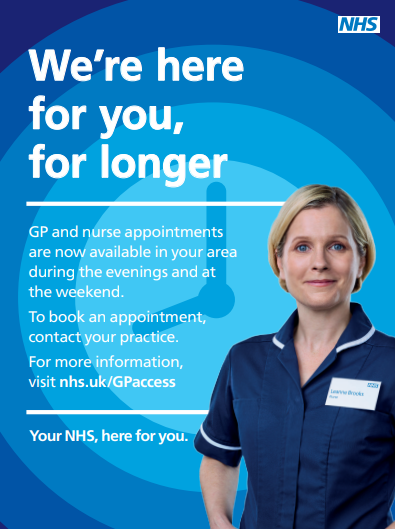Edenbridge Medical Practice: Practice privacy notice.
Edenbridge Medical Practice has a legal duty to explain how we use any personal information we collect about you, as a registered patient at the practice. Staff at this practice maintain records about your health and the treatment you receive in electronic and paper format.
There have been posts on social media with false information about opting out of sharing your data with the NHS.
Here’s what you need to know:
- There is no 30 September deadline for opting out of sharing your data. You can opt out at any time.
- NHS Digital will never sell your data.
- There are strict rules about how the NHS can use your data. It’s only shared securely and safely.
- Shared data helps the NHS. It has been used to find the first treatment for coronavirus and for vaccine research.
Read NHS Digital’s response to the false information about the national data opt-out
What information do we collect about you?
We will collect information such as personal details, including name, address, next of kin, records of appointments, visits, telephone calls, your health records, treatment and medications, test results, X-rays, etc. and any other relevant information to enable us to deliver effective medical care.
How we will use your information
Your data is collected for the purpose of providing healthcare services; however, we can disclose this information if it is required by law, if you give consent or if it is justified in the public interest. The practice may be requested to support research; however, we will always gain your consent before sharing your information. Please be aware that by sending in photos you are consenting to these being added to your medical notes. Please do not send images of any intimate areas.
In accordance with the Health and Social Care Act 2012, the care data programme enabled patient data to be collected by the Health and Social Care Information Centre (HSCIC) for quality and safety purposes. In addition, it is possible for us to share your data with other healthcare providers in order to provide you with a high level of care.
Maintaining confidentiality and accessing your records
We are committed to maintaining confidentiality and protecting the information we hold about you. We adhere to the Data Protection Act 1998 (DPA), General Data Protection Regulation May 2018 [GDPR]; the NHS Codes of Confidentiality and Security, as well as guidance issued by the Information Commissioner’s Office (ICO). You have a right to the information we hold about you, and if you would like to access this information, you will need to complete a Subject Access Request (SAR). Please ask at reception for a SAR form and you will be given further information.
Risk stratification
Risk stratification is a mechanism used to identify and subsequently manage those patients deemed as being at high risk of requiring urgent or emergency care. Usually this includes patients with long-term conditions, e.g. cancer. Your information is collected by a number of sources, including Edenbridge Medical Practice; this information is processed electronically and given a risk score which is relayed to your GP who can then decide on any necessary actions to ensure that you receive the most appropriate care.
Opt-outs
Should you wish to opt out of data collection, please visit www.nhs.uk/your-nhs-data-matters or contact a member of staff who will be able to explain how you can opt out and prevent the sharing of your information; this is done by registering a Type 1 opt-out, preventing your information from being shared outside this practice.
What to do if you have any questions
Should you have any questions about our privacy policy or the information we hold about you, you can:
- Contact us via email at admin.edenbridge@nhs.net
- Write to the practice at Edenbridge Medical Practice, Station Road, Edenbridge TN8 5ND
Changes to our privacy policy
We regularly review our privacy policy and any updates will be published on our website, in our newsletter and on posters to reflect the changes. This policy is to be reviewed May 2021
.jpg)







